The Australian cricket community received a setback as the news broke that Steven Smith would miss the entire South Africa tour due to a lingering wrist injury sustained during the Ashes. Despite this setback, Smith's anticipated return for the ODIs in India and the forthcoming World Cup has provided a glimmer of hope.
Ashton Turner, at the helm of the Perth Scorchers, will step into Smith's shoes for the T20Is, while Marnus Labuschagne's inclusion brings fresh energy to the ODI segment.
Smith's battles with a persistent left wrist issue, stemming from a tendon injury, were evident throughout the England series. Presently, he is undergoing recovery with the aid of a splint. His absence from the T20Is against South Africa is a notable loss, yet his slated comeback for the India series in September, just prior to the World Cup, is eagerly anticipated.
Mitchell Starc, currently nursing a groin ailment post the Ashes, will also miss the South Africa tour, but expectations are high for his participation in the India series. Uncapped left-arm speedster Spencer Johnson will remain in South Africa for the ODIs.
Stepping into the captain's shoes for the South Africa ODIs, Mitchell Marsh's appointment follows his leadership role in the T20I series. Meanwhile, Pat Cummins' contribution during the ODIs is contingent on his recovery from a fractured wrist.
Chair of selectors George Bailey elucidated that the compacted Ashes series and the ongoing World Test Championship influenced a cautious approach, considering the imminent World Cup. Bailey underscored, "With the World Cup as our squad's focal point, it was advised that Steve and Mitchell be integrated into the group in India, allowing them ample time to regain full fitness for the Indian ODI series and the subsequent World Cup warm-up fixture."
The T20I squad already faces depletion due to player rest, encompassing Cummins, Starc, Hazlewood, Green, Warner, and Agar. Glenn Maxwell's dual engagement in T20Is against South Africa followed by his absence for the subsequent ODI series, as he awaits the birth of his child, reflects his commitment to both cricket and family.
Marnus Labuschagne's call-up signals a renewed opportunity in the ODI domain, although his participation in the World Cup squad remains uncertain. Ashton Turner, stepping in as a replacement, is making his exit from the Hundred tournament to bolster the Australian contingent in South Africa.
Turner's leadership and Labuschagne's inclusion aptly epitomize Australia's adept adaptation strategy in the face of pivotal player absences, shedding light on meticulous planning for the imminent World Cup.
Guiding the T20 side, Coach Michael Di Venuto will be joined by Clint McKay and Australian women's assistant coach Dan Marsh, while head coach Andrew McDonald temporarily steps back ahead of the ODIs.
[Submitted by Estea Rademeyer]
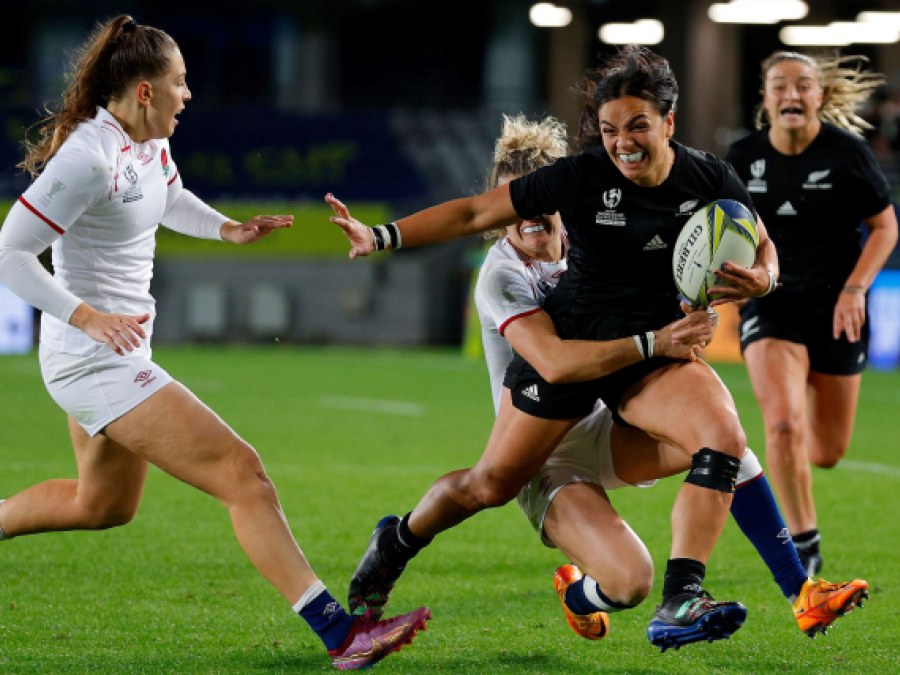
In a resounding display of enthusiasm for women's rugby, cities spanning England are primed to commemorate the impending Rugby World Cup 2025, with just two years remaining until the momentous event kicks off. Anticipation mounts as the 10th edition of the world's preeminent women's rugby championship is slated to unfold between August 22 and September 27, 2025.
This forthcoming edition of the pinnacle global tournament ushers in new milestones, with the teams increased from 12 to 16—a testament to the accelerating growth of women's rugby on a global scale. The reverberations of one exhilarating Women's World Cup are set to segue seamlessly into another as England takes center stage in hosting Rugby World Cup 2025.
In tandem with the support of the UK Government, World Rugby and the RFU have officially unveiled the host cities, venues, and tournament dates for this monumental celebration of women's rugby. The curtain will rise on August 22, with the grand finale set to transpire on September 27. The unprecedented nationwide format ensures unparalleled access to witness, engage with, and champion the luminaries of the women's game.
Following an ardent selection process, the lineup of host cities and venues mirrors the tournament's central aim of propelling the sport's growth, propounding rugby across diverse communities in the country. Each location is poised to offer a family-oriented rugby extravaganza.
Marking a groundbreaking departure, this elite women's rugby tournament will unfold across eight venues and cities nationwide, with a roster of 16 teams contending to seize the mantle of world champions.
The Celebration Unveiled: Host Cities and Venues
Brighton and Hove – Brighton and Hove Albion Stadium
Bristol – Ashton Gate
Exeter – Sandy Park
London – Twickenham Stadium
Manchester – Salford Community Stadium *Subject to final confirmation
Northampton – Franklin’s Gardens
Sunderland – Stadium of Light
York – York Community Stadium
While the comprehensive match schedule and ticket particulars will be disclosed in the forthcoming year, this two-year juncture marks an opportune moment for fans across England to commence their preparations for the Rugby World Cup 2025 experience.
Canada, England, France, and New Zealand have already secured their positions in Rugby World Cup 2025 by virtue of their top-four finishes in RWC 2021. The remaining slots will be filled via the new women's international 15s tournament, WXV, and regional competitions in 2024.
Elevating the standards and fortifying the roots of the sport, Rugby World Cup 2021 charted remarkable milestones, welcoming over 150,000 attendees throughout the tournament. The final alone garnered an average viewership of 1.8 million in England and New Zealand, with social media amassing more than 156 million video views. This epochal event not only forged indomitable personas but also forged accessible and relatable role models, championing transformative change.
With Rugby World Cup 2025 in sight, the mission to advance women in rugby rouses fresh vigor, fostering the aspirations of burgeoning players and galvanizing the ascent of women's sports across England and the globe. The Rugby World Cup Impact Programme, a collaborative initiative between the RFU, UK Government, and Sport England, is poised to yield unprecedented opportunities for females across all tiers of the game, spanning volunteering, coaching, and internships.
Set to be the most accessible iteration to date, Rugby World Cup 2025 is set to transcend geographical bounds, bringing the finest players to cities all over England. Among the chosen venues, four are already home to English domestic rugby squads, exemplifying the synergy between elite and grassroots rugby. The illustrious Twickenham Stadium, iconic citadel of England Rugby, also takes a pivotal role as a host venue.
The tournament finds its way to three stadiums with a football pedigree: Brighton and Hove Stadium, Sunderland's Stadium of Light, and York's Community Stadium. This diverse selection of locales echoes the tournament's ethos of accessibility and inclusivity.
World Rugby Chairman Sir Bill Beaumont encapsulated the sentiment, affirming, "RWC 2025 is set to take the game to the next level as the biggest celebration of women’s rugby with fans and players very much at its heart." As the journey towards Rugby World Cup 2025 ensues, England's role as the epicenter of world-class sporting splendor comes into view, primed to etch an indelible legacy in the annals of sport.
PHOTO: Hagen Hopkins - World Rugby/World Rugby via Getty Image
[Submitted by Kevin Rademeyer]
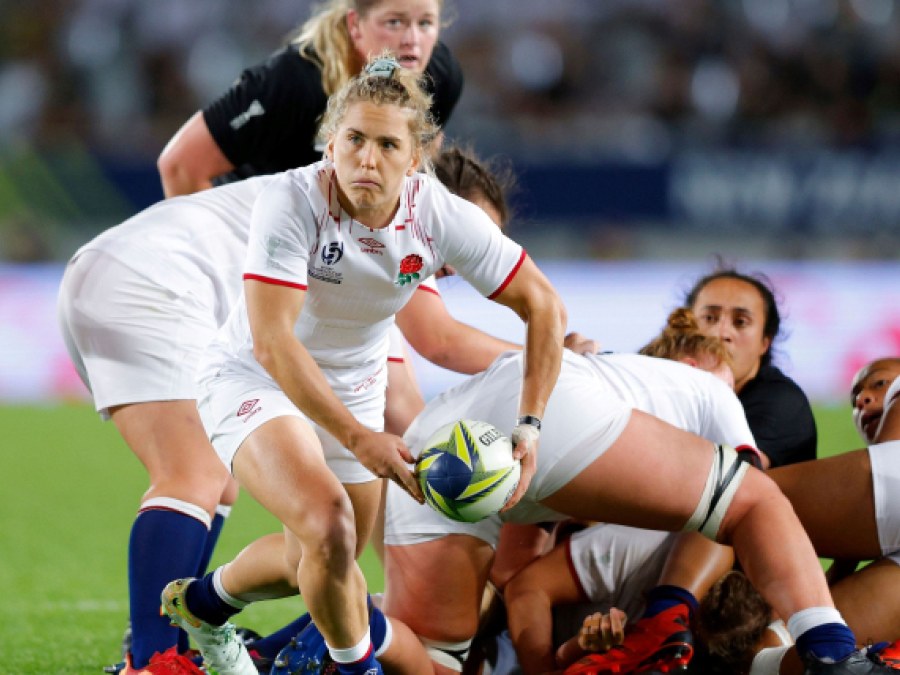
Two Years Await Until the Eruption of Rugby World Cup 2025, Engulfing England in Anticipation
The atmosphere crackles with electric anticipation as England's cities gear up for an exultant celebration—the impending Rugby World Cup 2025 looms large, a mere two years away from dazzling audiences. The crescendo of excitement peaks as the 10th edition of the paramount women's rugby championship prepares to grace the stage, igniting the skies from August 22 to September 27, 2025.
This forthcoming chapter of the global masterpiece unfolds with resplendent innovation, raising the stakes as the teams surge from 12 to 16—an audacious tribute to the wildfire spread of women's rugby across the planet. The resounding echoes of a spellbinding Women's World Cup cascade seamlessly into another crescendo, as England ascends to the spotlight to host the grand theater of Rugby World Cup 2025.
In a harmonious symphony supported by the UK Government's fortitude, World Rugby and the RFU have dramatically unfurled the tapestry of host cities, venues, and the epic voyage's timeline, all in honor of this grand jubilation of women's rugby. The grand overture shall grace the skies on August 22, with the grand finale unfurling on September 27. This audacious and unprecedented tapestry weaves together a nation, affording an unparalleled opportunity to embrace, witness, and reverberate with the eminence of women's rugby legends.
Emerging from an ardently scrutinized selection process, the celestial alignment of host cities and venues resounds with the very heartbeat of the sport's growth—a magnificent tapestry that stitches rugby's essence into the diverse tapestry of communities across the nation. Each locale unveils its stage with an unfaltering promise: a rugby extravaganza woven for families to embrace with fervor.
Breaking free from the known, this coveted women's rugby gala sprawls across eight resplendent venues, nestled within cities that span the expanse of the nation. Sixteen teams shall duel passionately, each thirsting to seize the coveted title of world champions, inscribing their names into the annals of rugby history.
A Glimpse of the Grand Stage: Host Cities and Venues
Brighton and Hove – Brighton and Hove Albion Stadium
Bristol – Ashton Gate
Exeter – Sandy Park
London – Twickenham Stadium
Manchester – Salford Community Stadium (*Pending final confirmation)
Northampton – Franklin’s Gardens
Sunderland – Stadium of Light
York – York Community Stadium
While the intricate choreography of matches and the intricacies of ticketing await their grand reveal in the forthcoming year, this pivotal juncture of two years offers an exquisite canvas for enthusiasts across England to commence their meticulous preparations for their Rugby World Cup 2025 odyssey.
In the spotlight, the formidable Canada, England, France, and New Zealand have already secured their elite spots in the pantheon of Rugby World Cup 2025 due to their triumphant top-four finishes in RWC 2021. The remaining saga of entry shall be authored by the bold narratives of the new women's international 15s tournament, WXV, and the dramatic regional showdowns of 2024.
Elevating standards, bolstering the very bedrock of the sport, the scintillating tale of Rugby World Cup 2021 authored monumental feats, summoning a colossal gathering of over 150,000 devotees throughout the spectacle. The culminating act alone witnessed an enraptured audience of 1.8 million in England and New Zealand, while the digital tapestry echoed with over 156 million video views. An epochal occasion birthing steadfast titans, yet also crafting accessible and relatable avatars to spark transformative waves of change.
With the radiant horizon of Rugby World Cup 2025 gleaming brightly, the endeavor to propel the beacon of women's rugby awakens with renewed vigor, infusing dreams into nascent players and catalyzing a sweeping rise of women's sporting prowess, casting an enthralling spell across the English landscapes and beyond. The harmonious alliance of RFU, UK Government, and Sport England heralds the Rugby World Cup Impact Programme, forging pathways of unprecedented potential for women, spanning tiers, embracing the realm of volunteerism, coaching, and internships.
A resplendent aspiration takes flight—a vision of Rugby World Cup 2025 ascending to unsurpassed accessibility, transcending geographical confines, serenading cities across England with the luminance of the premier players. Among these chosen theaters, four splendidly echo with the rapture of English domestic rugby, a sublime synergy embracing both the zenith and grassroots of the game. Among these beacons, the venerable Twickenham Stadium, a hallowed coliseum of England Rugby, assumes the pivotal mantle of a host venue, poised to orchestrate magnificent spectacles.
The grand orchestration also sweeps across three arenas, renowned citadels of football prowess: the ethereal Brighton and Hove Stadium, the effulgent Stadium of Light in Sunderland, and the mesmerizing York Community Stadium. This triumvirate of locales unfurls an exquisite spectrum, perfectly harmonizing with the ethos of inclusivity and accessibility that underpins this grand odyssey.
In the resounding words of World Rugby Chairman Sir Bill Beaumont, "RWC 2025 is set to take the game to the next level as the biggest celebration of women’s rugby with fans and players very much at its heart." As the odyssey toward Rugby World Cup 2025 unfurls, the magnificent tapestry of England's role as a crucible of world-class sporting splendor comes into full view, poised to etch an indelible legacy in the immortal chronicles of sport.
Photo credit: Hagen Hopkins - World Rugby/World Rugby via Getty Image
[Submitted by Estea Rademeyer]
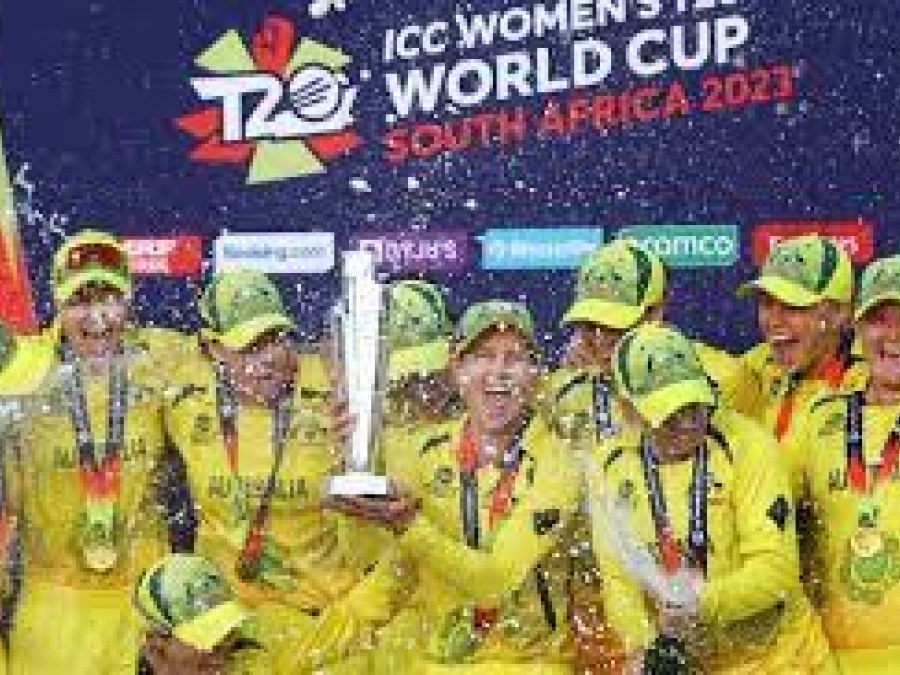
The realm of women's cricket has embarked on an awe-inspiring journey of growth, and the numbers from the ICC Women’s T20 World Cup 2023 serve as a resounding testament to this remarkable ascent. With an astounding uplift of 26% in video views across all ICC digital platforms, the 2023 edition amassed a staggering 1.39 billion video views compared to the 1.1 billion garnered by the 2020 edition in Australia.
What's more, the ICC website and app witnessed the highest-ever audience for a women's cricket event, recording 12.5 million unique users across both platforms. This astonishing figure is a 20% surge from the Women’s Cricket World Cup 2022 held in New Zealand. Undoubtedly, this surge in numbers underscores the dividends reaped from ICC's strategic investment in an array of groundbreaking features, an industry first for a women’s cricket event.
One of the standout innovations was the VR ShotTracker, which enabled fans to experience augmented replays of every six, offering an immersive view of the game's most electrifying moments. The inclusion of a vertical video feed, featuring in-game highlights and match recaps, kept fans engaged and up-to-date. Additionally, the in-stadia activations for attending fans added another layer of excitement to the entire experience.
The ICC's alliance with Meta bore fruit yet again, with the primary objective of enhancing awareness of the event among a younger and more diverse audience in India. Collaborating with three Instagram content creators, the ICC presented non-traditional content pieces, including an Indian cricket team singalong, humor-infused skits involving players (in Hindi), and empowering segments celebrating the event's participants. This inventive content series struck a chord, amassing a remarkable 344 million video views for just 14 individual Reels.
Speaking on this resounding success, ICC Chief Executive Geoff Allardice stated, "The ICC Women’s T20 World Cup 2023 broadcast and digital numbers are another example of the excellent progress that is being made to accelerate the growth of women’s cricket." Clearly, this ascendancy of women's cricket is not just an isolated event; it is part of a larger strategy to captivate fans and engage new audiences through ICC's Women's events.
The ICC Women's T20 World Cup 2023 transformed the landscape of women's cricket in South Africa with its exhilarating and competitive matches. Moreover, the event managed to attract increased engagement in key markets such as India and the UK. Allardice expressed his delight in this multi-faceted success story, which doesn't merely halt at one event but continues throughout the year, nourishing the insatiable appetite for engaging content among cricket enthusiasts worldwide.
[Submitted by Estea Rademeyer]

August 20, 2023 - In a thrilling final showdown at the Women's World Cup, Spain secured a historic victory by defeating England 1-0. The culmination of this global spectacle, co-hosted by Australia and New Zealand, not only set new attendance and TV records but also ignited hopes for a surge in interest and support for women's football.
A pivotal Olga Carmona goal proved to be the decisive factor in a riveting contest that saw Spain create a majority of the clear-cut chances. Thousands of enthusiastic fans gathered at Stadium Australia in Sydney, immersing themselves in a vibrant festival atmosphere created by drummers and stilt walkers.
Both Spain and England, making their maiden appearances in a Women's World Cup final, battled fiercely for supremacy. The victory for Spain marked their first-ever world title in women's football, while England's pursuit of a trophy, since their memorable men's tournament victory in 1966, was prolonged.
As Australia's national team, the Matildas, exited the tournament in the semi-finals, local interest experienced a dip. However, a total of nearly two million fans contributed to the success of the event across nine host cities, culminating with a final crowd of 75,784.
Australia's semi-final match against England attracted an astonishing average viewership of 7.13 million on the Seven Network, setting an unprecedented record for OzTAM, a research firm established in 2001. Matildas matches, with sold-out venues months in advance, indicate a promising future for women's football in terms of audience engagement.
Organizers expect the average attendance to surpass 30,000 once all 64 matches are concluded, further accentuating the event's significant appeal. Comparatively, the last Women's World Cup in France drew over 1.1 million fans to 52 matches, with an average crowd of 21,756.
In New Zealand, interest was varied, with some matches attracting as few as 7,000 fans. The White Ferns, however, managed to set soccer attendance records for the country despite their team's early exit in the group stages.
At the grassroots level, the sport demands increased resources, as emphasized by Matildas striker Sam Kerr following their semi-final defeat. The team's standout performance has ignited calls for enhanced support for women's soccer in Australia, highlighting the sport's growth potential.
Australian Prime Minister Anthony Albanese pledged A$200 million for women's sports development, with soccer set to benefit from this significant funding. The government also aims to ensure broader access to women's sporting events through free-to-air television broadcasts, addressing concerns about paywalled coverage.
The remarkable journeys of the finalists, England and Spain, underscore the challenges that women's soccer has encountered. Despite these hurdles, the sport is progressively gaining momentum and recognition, indicative of a changing landscape that promises brighter horizons for women's football on a global scale.
[Submitted by Estea Rademeyer]
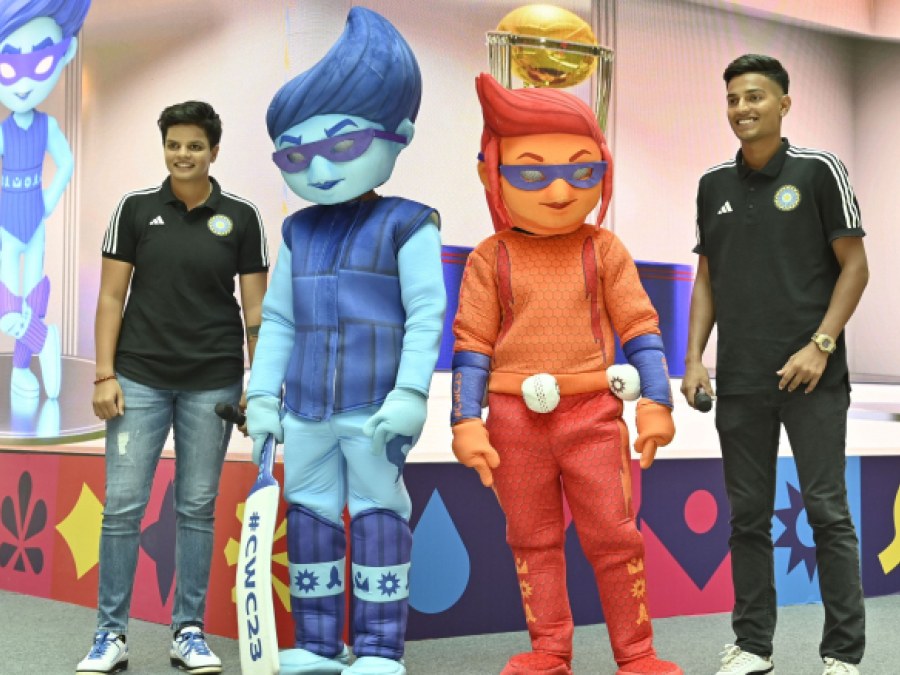
The International Cricket Council (ICC) has set the stage ablaze with the introduction of a charismatic mascot duo, poised to embody the unity and spirit that cricket champions across the globe. These captivating characters are set to thrill the next generation of cricket enthusiasts and are an exhilarating addition to the upcoming ICC Men’s Cricket World Cup.
As anticipation builds for the highly awaited cricket spectacle, the ICC has revealed an enduring mascot duo that aims to captivate and engage fans while leaving an indelible mark on ICC events. In an unprecedented move, fans are invited to take part in the process of naming these iconic mascots, elevating their significance within the cricket community.
Unveiled at a momentous event in Gurugram, India, graced by ICC Under-19 Women’s and Men’s winning captains Shafali Verma and Yash Dhull, these characters symbolize the essence of gender equality and diversity. Emerging from a realm known as the Crictoverse, these figures embody an energetic fusion that promises to enhance fan experiences and infuse vibrant atmospheres at future ICC events.
The female character hails as an embodiment of explosive power, propelling fireballs with a turbo-powered arm that leaves even the boldest batters in awe. Her precision and reflexes make her an epitome of fast bowling prowess, carrying six power cricket orbs that are a testament to her strategic brilliance. The male character radiates sub-zero coolness and electrifying batting prowess. Every shot he plays, from subtle finesse to six-smashing strokes, resonates with a captivating force that ignites audiences.
Cricket enthusiasts will play a significant role in naming these iconic figures. The opportunity to submit preferences for their names is open until August 27th.
Engaging fans young and old, the mascot duo's design and development stages were influenced by comprehensive surveys that gathered qualitative and quantitative feedback. This collaborative approach ensured that the mascots truly resonate with the diverse and passionate cricket community.
The launch event in India featured a mesmerizing 3D anamorphic video display, unveiling the mascots' origins and journey to the ICC Men's Cricket World Cup 2023. Attendees were treated to an immersive hyper-visual experience, blending optical illusions to captivate on-site and remote audiences alike.
Chris Tetley, ICC Head of Events, expressed delight at the launch, emphasizing the mascots' embodiment of cricket's universal appeal and unity. He noted their representation of both genders as a celebration of gender equality's role in the dynamic world.
The mascot duo's presence will extend beyond the tournament, engaging fans through broadcasts, digital platforms, and on-site interactions. Unique mascot-themed merchandise, including wearable items like sunglasses, will enable fans to carry a piece of the Crictoverse wherever they go.
With tickets available for the ICC Men's Cricket World Cup starting from August 25th, fans can register from August 15th to be part of this grand event that promises a cricketing experience like no other.
[Submitted by Kevin Rademeyer]
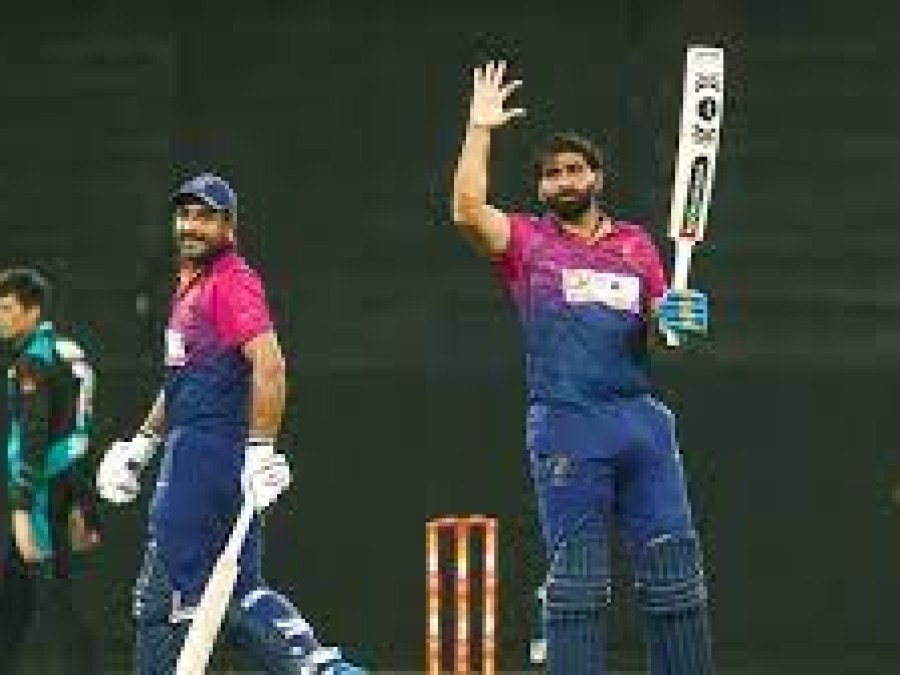
August 20, 2023 - The United Arab Emirates (UAE) cricket team scripted a remarkable chapter in their history as they secured their first-ever T20 International victory in Dubai, breaking an eight-match losing streak on home soil. Furthermore, the UAE squad achieved their maiden win over New Zealand in any format, adding another layer of historic significance to the day's events.
In an electrifying encounter, UAE displayed an awe-inspiring performance to comfortably defeat New Zealand by seven wickets in the second T20I match of the three-game series, drawing the series level at 1-1. The victory marked a significant turning point for UAE cricket, while also handing New Zealand their first loss against a non-Test-playing nation across all formats in 39 matches.
The young left-arm spinner, 17-year-old Aayan Afzal Khan, emerged as the hero of the day, putting up a mesmerizing display to finish with career-best figures of 3 for 20. His spell helped UAE restrict New Zealand to a modest total of 142 for 8. A solid contribution from Mark Chapman, who scored a brisk 63 off 46 balls, was the mainstay of New Zealand's innings, as only two other Kiwi batsmen managed to reach double figures.
Muhammad Waseem played a pivotal role in ensuring UAE's triumph. His explosive 55 off 29 balls provided the team with a strong foundation right from the start. The partnership between Asif Khan and Basil Hameed guided UAE to a resounding victory with a comfortable 26 balls to spare.
The match took place on the same pitch as the first T20I, setting the stage for spinners to make a significant impact. Waseem immediately brought Aayan into action, inducing a stunning collapse of New Zealand's top order. He dismissed Tim Seifert and then cleaned up the crucial wickets of Mitchell Santner and Dane Cleaver in successive deliveries, leaving New Zealand reeling at 38 for 4 in the seventh over.
Chapman, drawing from his experience of playing in subcontinent conditions, played with aplomb and authority. He tackled UAE's spinners adeptly, which proved challenging for most other New Zealand batsmen. Chapman's half-century was a testament to his skill in negotiating the spin-heavy attack.
New Zealand's defense of 142 began in spectacular fashion, with James Neesham pulling off a stunning catch to dismiss Aryansh Sharma early on. However, Muhammad Waseem's strong performance ensured UAE remained ahead of the required run rate throughout their chase. Waseem capitalized on the reprieves he received, forging crucial partnerships with Vriitya Aravind and Asif Khan.
What set UAE's second T20I performance apart from their previous outing was the composed approach adopted by their batsmen. Even when Waseem fell, the team displayed confidence and control. Basil Hameed's steady strike rotation and Asif Khan's mature shot selection played a pivotal role in steering UAE towards victory.
The game culminated with Asif Khan hitting successive boundaries to seal the victory, sparking jubilant celebrations in the UAE camp. This historic win will undoubtedly serve as a significant milestone in the UAE cricketing journey, inspiring the team and captivating cricket enthusiasts across the nation.
As the series heads into the deciding third T20I, the UAE team will be riding high on momentum, with newfound confidence to potentially secure their maiden series victory against a formidable opponent like New Zealand. Cricket enthusiasts around the world will be eagerly awaiting the thrilling conclusion to this captivating series.
[Submitted by Kevin Rademeyer]
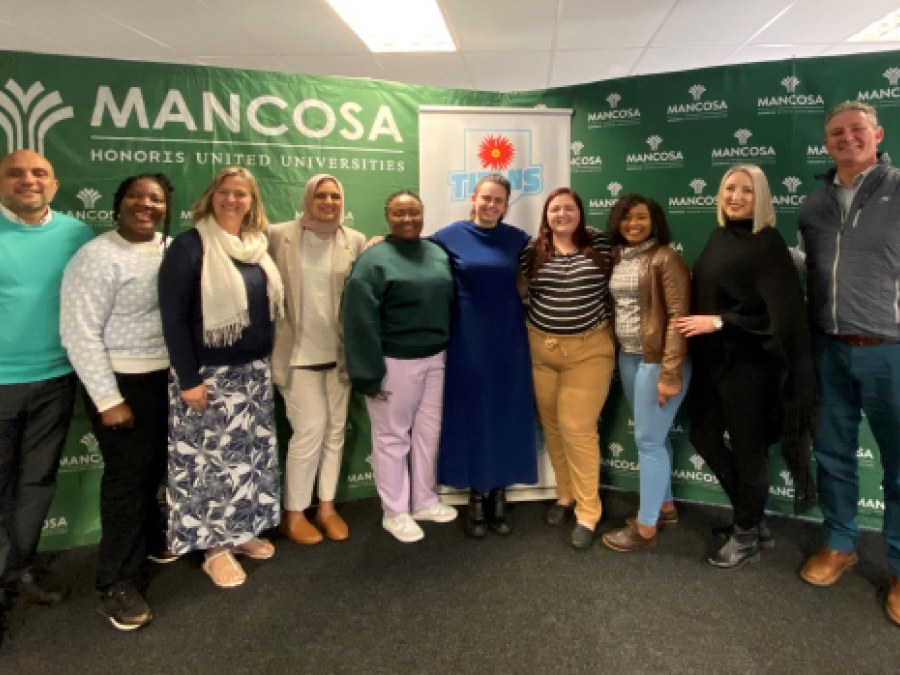
A noteworthy collaboration between Titans Cricket and the esteemed higher education institution, MANCOSA, has culminated in a momentous celebration. This celebratory event marks the graduation of the inaugural batch of MANCOSA's Women in Leadership program, a significant stride towards empowering women within cricket's leadership realm.
Crafted by MANCOSA, the six-month program is tailored to equip aspiring leaders within the Titans Cricket framework with essential skills to propel the game to new heights both at the club cricket and professional levels. Aiming to nurture future game-changers, this initiative serves as a stepping stone for women in cricket administration.
Chosen by their respective clubs for their potential to contribute to club committees and, potentially, the Titans Cricket board, the program's participants were handpicked for their dedication and promise. The three women who partook in the program are Lindiwe Mathimbe from Tuks Cricket Club, Renschi Botha from Adelaar Cricket Club, and Walri van Heerden from Irene Villagers. As administrative pillars in their clubs, these participants have embraced the program's toolkit to enhance their operational efficiency.
Charlotte Serwadi, a prominent voice in the cricket community, shared her satisfaction with the Women in Leadership Program's outcome. She expressed confidence that this endeavor would not only amplify the participants' impact on the cricketing landscape but also extend its influence into various facets of their lives. Serwadi emphasized the significance of promoting skilled women in cricket administration and unearthing the multifaceted opportunities within the game.
This auspicious culmination of the leadership program coincides harmoniously with August, a month dedicated to celebrating women. While the honors were conferred this month, the program's journey commenced in March, encompassing an enriching six-month span.
Dr. Jacques Faul, CEO of Titans Cricket, underscored the union's commitment to inclusivity and skill development. He lauded MANCOSA's pivotal role in creating an exceptional curriculum that not only imparts knowledge but also enhances the participants' personal and professional growth.
Reflecting on the program's impact, Mr. Mubeen Seedat from MANCOSA elaborated on its profound achievements. Initially underestimated, the program surpassed expectations by fostering meaningful relationships and facilitating unforeseen growth opportunities.
Since its inception in 2015, the Centre for Women in Leadership at MANCOSA has embarked on numerous initiatives aimed at empowering women. Advocating research, training, networking, and mentorship, the Centre is committed to elevating women's roles in leadership positions and fostering their growth in professional settings.
This collaborative effort between Titans Cricket and MANCOSA stands as a beacon of progress, signaling the dawn of a new era where women's leadership in cricket is both recognized and nurtured. As Africa's cricketing landscape evolves, this partnership paves the way for transformative change, echoing the vision of both organizations to empower women in leadership roles.
[Submitted by Estea Rademeyer]
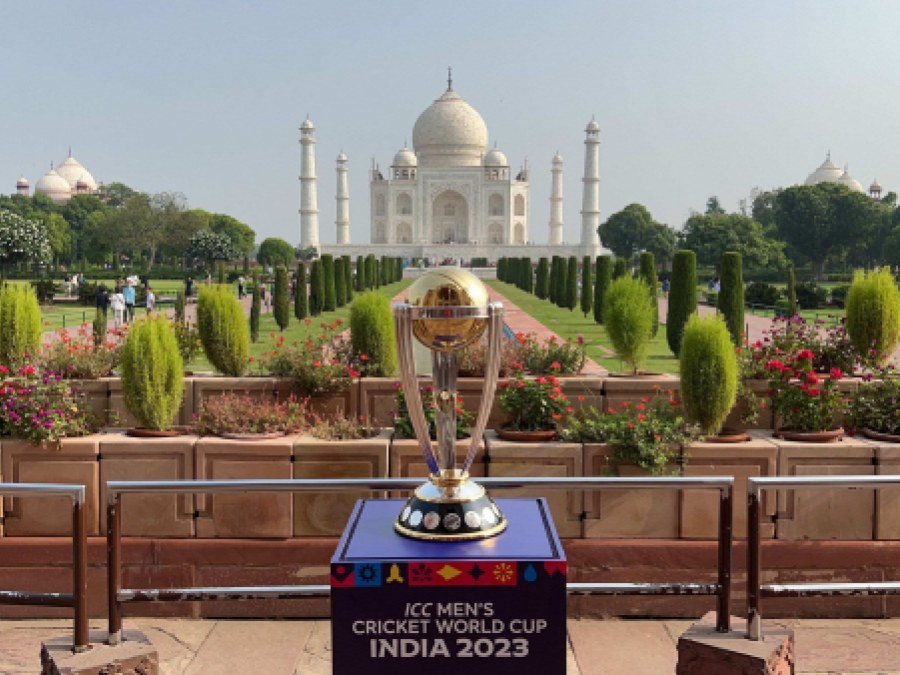
Fans can now register for ICC Men’s Cricket World Cup 2023 tickets to secure their spot at experiencing the joy of cricket in one day. Starting today on Indian Independence Day, fans can now register for tickets, enabling them to receive on sale news first ahead of tickets going on sale on 25 August.
Registration for ICC Men’s Cricket World Cup tickets which takes place between 5 October and 19 November across 12 Indian cities can be accessed here https://www.cricketworldcup.com/register from 15h30 IST today.
To manage the demand for tickets and to give as many fans as possible the best chance of seeing the world’s best players, tickets will go on sale in phases on the following dates:
25 August: Non-India warm-up matches and all non-India event matches
30 August: India matches at Guwahati and Thiruvananthapuram
31 August: India matches at Chennai, Delhi and Pune
1 September: India matches at Dharamsala, Lucknow and Mumbai
2 September: India matches at Bengaluru and Kolkata
3 September: India matches at Ahmedabad
15 September: Semi Finals and Final
Fans are urged to capitalise on the opportunity of staying fully informed by completing the registration process.
[Submitted by Kevin Rademeyer]
TSHWANE - A resolute display of skill by Andile Mogakane and Matthew Boast resonated with both bat and ball, as South Africa Emerging scripted a compelling redemption tale with a 23-run victory over Zimbabwe Emerging in the second one-dayer held at Tshwane on Tuesday.
Having chosen to field after winning the toss at the Groenkloof Oval, the touring Zimbabweans faced an assertive batting performance from the hosts. Dafabet Warriors' all-rounder Mogakane took the lead, blazing his way to a commanding 70 off 60 deliveries, adorned with 7 fours and 2 sixes. Meanwhile, Momentum Multiply Titans' Boast held his own, crafting an unbeaten 51 off 63 balls, laced with 4 fours and 1 six. Their collaborative effort steered the home side to a substantial 295 for nine within their 50 overs.
In response, Zimbabwe's chase encountered hurdles, culminating in a total of 272 all out in 43.2 overs. Boast showcased his prowess, finishing with three wickets for 68 runs. Liam Alder emerged as a standout bowler, notching three wickets for 35 runs, followed by Nealan van Heerden's two for 65. Mogakane's precision was evident in his none for 35, displaying economy in his spell.
This triumph was a sparkling response from the South African contingent after their previous loss by six wickets in the series opener.
The hosts faced early adversity, losing Jordan Hermann (9), Valentine Kitime (7), and Daniel Smith (1) swiftly. It was Joshua Richards (43) and skipper Mitchell van Buuren (42) who orchestrated the recovery, yet the team stood at 120 for five nearing the halfway mark.
Mogakane and Boast then joined forces, injecting momentum into the innings during its second half. Alongside Musa Twala's contribution of 28, they galvanized their side to set an imposing target of 296 for victory.
Zimbabwe's pursuit encountered early setbacks, with Nealan van Heerden and Boast striking within the first four overs, leaving the visitors at 24 for two. A spirited onslaught by Wesley Madhevere (55 off 28 balls) added a dash of hope. Though removed by Nealan van Heerden, captain Roy Kia (33) and Clive Madande (40) managed to maintain Zimbabwe's run-rate advantage.
South Africa, however, chipped away, making crucial breakthroughs. Despite Brandon Mavuta's fiery 66 off 59 balls (11 fours), the visiting side was eventually bowled out with nearly five overs remaining.
South Africa Emerging Squad against Zimbabwe Emerging:
Mitchell van Buuren (DP World Lions, captain), Liam Alder (Dafabet Warriors), Matthew Boast (Momentum Multiply Titans), Okuhle Cele (Hollywoodbets Dolphins), Michael Copeland (Gbets Rocks), Jordan Hermann (Dafabet Warriors), Valentine Kitime (Six Gun Grill Western Province), Andile Mogakane (Dafabet Warriors), Peter Nqaba (DP World Lions), Siya Plaatjie (Dafabet Warriors), Joshua Richards (DP World Lions), Daniel Smith (Six Gun Grill Western Province), Musa Twala (Momentum Multiply Titans), George van Heerden (Dafabet Warriors), and Nealan van Heerden (Dafabet Warriors).
Management:
Malibongwe Maketa (Head Coach), Mandla Mashimbyi (Assistant Coach), Ashler Serwadi (Team Manager), Tumi Masekela (Strength and Conditioning Coach), Arishana Maghoo (Physiotherapist), and Hendrikus Coetzen (Video Analyst).
South Africa Emerging Tour against Zimbabwe Itinerary:
Sunday, 13 August at 09:30: South Africa Emerging lost to Zimbabwe Emerging by 6 wickets at Groenkloof Oval, Tshwane
Tuesday, 15 August at 09:30: South Africa Emerging beat Zimbabwe Emerging by 23 runs at Groenkloof Oval, Tshwane
Friday, 18 August at 09:30: South Africa Emerging vs Zimbabwe Emerging at Groenkloof Oval, Tshwane
Monday, 21 August at 09:30: South Africa Emerging vs Zimbabwe Emerging at Groenkloof Oval, Tshwane
Wednesday, 23 August at 09:30: South Africa Emerging vs Zimbabwe Emerging at Groenkloof Oval, Tshwane
[Submitted by Estea Rademeyer]


















